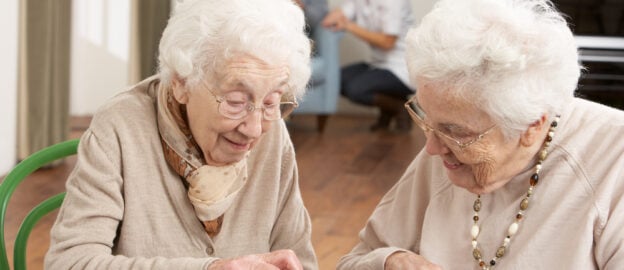Resources, information and guidance on providing personalised and person-centred care for care providers, managers and practitioners.

Introduction to personalisation
Personalisation means recognising people as individuals, putting them at the centre of their own care and support.

Evaluating personalised care
This guide helps practitioners to measure and evaluate the impact of personalised care programmes, initiatives or new ways of working. For commissioners, performance managers and lead professionals.

Personalisation and the Equality Act 2010
The Equality Act 2010 applies to everyone who provides a service to the public, whether or not a charge is made for that service. It covers statutory, private, voluntary and community sector organisation.

Meeting the needs of every individual
In a care home, ‘quality’ is about ensuring that the individual’s hopes, goals and needs are met.
